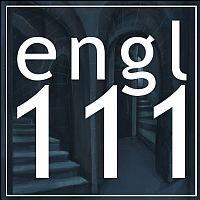|
© 2005-07 Edmond Chang. All original material. All rights reserved. Email the webmaster of this site. These pages are best viewed with Mozilla Firefox or Internet Explorer. Open your browser to the largest viewable area. These pages are hosted by the University of Washington Computing & Communications system. Images drawn from "Erised" by Chantelle Berg. |
The central question for our class is: Can you think what Harry Potter shows us all? Much like gazing into the Mirror of Erised, what does reading, thinking about, and writing about J.K. Rowling’s famed series—both books and films—offer us? What do we see, know, desire? Can we read Harry Potter as more than just-for-kids, more than just fantasy? Is it literature? Is it important? Might it give us a different kind of knowledge or a different kind of truth? A requirement for this class is a well-developed curiosity about the world, about the culture we live in, and about the cultural productions we imagine, produce, and consume. Lister and Wells, authors of "Seeing Beyond Belief," argue for just this kind of curiosity, a methodology for unpacking cultural productions; they say, "Cultural Studies allows the analyst to attend to the many moments within the cycle of production, circulation and consumption of [a text] through which meanings accumulate, slip and shift" (459). They argue that our understandings of identities, meanings, and power, as well as the intersections of cultural and social locations like race, gender, class, nation, and sexuality, can be excavated through the analysis of the texts we create and consume. This class will spend the quarter reading, thinking, writing about Harry Potter and how and what these texts argue, reveal, narrate, hide, perpetuate, and complicate the world we live in.
Welcome to English 111: Composition with Literature (M Spring Quarter 2006-07)Ursula K. Le Guin once wrote, “First sentences are doors to worlds.” In a manner of speaking, English 111 is the first sentence of your university experience. This class is a first step, a first look, and often a first in-depth exploration of literature, of academic writing about literature, of reading for writing, of scholarly research, and of rhetoric. The class takes as a basic assumption that writing is a skill and that, like any skill, it can be improved through guided practice. In this class, we will work to develop, challenge, and enhance the writing skills you already possess into the skills and intuitions necessary for academic and professional success. In a fundamental way, English 111 is a gateway class, a class that will set a critical and analytical standard and inform and influence and hopefully enrich your other courses. English 111 promises a quarter of writing, reading, discussion, library research, asking questions, more writing, revision, more reading, more discussion, critical thinking, analysis, fun, and even more writing and revision. It is a writing class after all. We will engage texts small and large, everyday and theoretical and pay close attention to the tactics of writing and rhetorical devices the authors employ. This particular incarnation of 111 also promises a healthy inclusion of new media, film, technology, popular culture, cultural studies, politics, gender studies, everyday activism, and experiential learning. Through all of these things, you will learn the principles behind academic arguments, claims, evidence, and analysis; you will develop rubrics of proofreading, revision, workshopping, research, and MLA citation; and you will learn how to apply these skills in your writing persuasively, responsibly, thoughtfully, and stylistically. By the end of the quarter, the goal is that you will be well versed in the English 111 course outcomes and be prepared to face the writing and reading challenges you encounter with the confidence and competence of a critical reader, writer, student, and citizen. For many, the prospect of taking English 111 is less than ideal. The course, over the years, has grown in both renown and infamy. English 111 is a difficult class, a time-consuming class, a meticulous class, a challenging class. It is a skills class. And at times it is a hard class. For many, it is only a required class that must be suffered and survived. Hopefully, though, English 111 will be more than just a requirement. Hopefully, you will come to realize that it is necessary and a foundation-building class with benefits that reach into your other classes, your time at the university, and beyond. For a detailed description of the class take a look at the Course Policies and Syllabus. |










